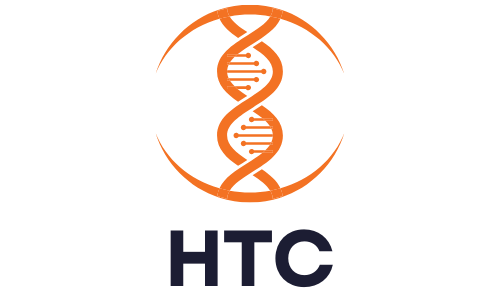HealthTech Startups in the Field of Nutrition and Wellness
The nutrition and wellness industry has undergone a significant transformation over the past decade, driven by increasing awareness of the importance of healthy living and preventative healthcare. As people become more health-conscious, the demand for innovative solutions to support nutrition and wellness has skyrocketed. This has led to the emergence of numerous HealthTech startups dedicated to revolutionizing how we approach our health and well-being. The integration of technology into nutrition and wellness is enhancing individual health outcomes and providing scalable, cost-effective solutions that can reach a broader population. This blog explores the pivotal role of HealthTech startups in the nutrition and wellness industry, examining the benefits, challenges, and future trends of this burgeoning field.
HealthTech in nutrition and wellness encompasses many applications and technologies designed to improve dietary habits, physical fitness, mental well-being, and overall health. These technologies include mobile applications, wearable devices, artificial intelligence (AI), machine learning, and data analytics. By leveraging these tools, HealthTech startups aim to provide personalized nutrition and wellness plans, track health metrics in real-time, and offer actionable insights to users.
Mobile applications are among the most prevalent HealthTech tools in this field. They offer functionalities such as diet tracking, meal planning, fitness monitoring, and mental health support. Wearable devices like smartwatches and fitness trackers collect data on physical activity, sleep patterns, and heart rate, providing users with real-time feedback on their health status. AI and machine learning algorithms analyze this data to deliver personalized recommendations, predict health trends, and even identify potential health risks before they become serious issues.
Benefits of HealthTech in Nutrition and Wellness
The integration of HealthTech into nutrition and wellness brings numerous benefits that significantly enhance health outcomes and quality of life. Firstly, these technologies provide personalized and precise health insights that are tailored to individual needs. Unlike generic health advice, personalized plans consider a user’s unique genetic makeup, lifestyle, dietary preferences, and health goals, leading to more effective and sustainable health improvements.
Secondly, HealthTech solutions improve access to nutrition and wellness support. With mobile apps and wearable devices, users can access health advice, track their progress, and receive feedback anytime, anywhere. This accessibility is particularly beneficial for individuals in remote areas or those with busy schedules who might otherwise struggle to maintain regular health consultations.
Thirdly, the use of HealthTech can lead to significant cost savings. By preventing health issues through early intervention and continuous monitoring, these technologies reduce the need for expensive treatments and hospitalizations. Moreover, the scalability of digital health solutions allows for broader reach at a lower cost compared to traditional healthcare services.
Investment Opportunities in Nutrition and Wellness HealthTech
The rapid growth and potential of HealthTech in nutrition and wellness present lucrative investment opportunities. Investors looking to enter this field should consider several factors when evaluating startups and technologies.
Firstly, it is important to identify companies that demonstrate strong market potential and scalability. Startups with innovative solutions that address significant health needs and can be easily scaled to a large user base are more likely to succeed.
Secondly, evaluating the technology’s efficacy and user engagement is critical. Investing in startups that have demonstrated positive health outcomes and high user retention rates can mitigate risks and increase the likelihood of returns.
Long-term vs. short-term investment strategies should also be considered. While some HealthTech startups may offer quick returns, investing in companies with sustainable business models and long-term growth potential can provide more substantial and lasting benefits.
In recent years, the nutrition and wellness industry has experienced significant growth, driven by increasing consumer awareness and demand for healthier lifestyles. This sector has become a fertile ground for HealthTech innovations, with numerous startups developing cutting-edge technologies to improve health outcomes. The importance of HealthTech in this field cannot be overstated, as it offers personalized solutions that cater to individual needs, enhancing overall well-being. This blog aims to explore the impact of HealthTech startups in the field of nutrition and wellness, highlighting their benefits, challenges, and future potential.
Understanding HealthTech in Nutrition and Wellness
HealthTech in the field of nutrition and wellness encompasses a wide range of technologies designed to monitor, analyze, and improve dietary habits and overall health. These technologies include mobile apps, wearable devices, and artificial intelligence (AI) platforms that provide personalized nutrition and wellness plans based on individual data. For instance, mobile apps can track food intake, monitor physical activity, and offer dietary recommendations, while wearables can measure vital signs and provide real-time health data. AI platforms analyze this data to deliver customized health insights and predictive analytics, helping users make informed decisions about their diet and lifestyle.
HealthTech solutions in nutrition and wellness offer numerous benefits, including improved health outcomes and quality of life. By providing personalized dietary recommendations and wellness plans, these technologies help individuals manage their health more effectively. For example, AI-driven nutrition apps can analyze a user's dietary habits and suggest nutrient-rich foods to enhance their diet. Additionally, wearables that monitor physical activity and vital signs can motivate users to stay active and maintain a healthy lifestyle. These personalized solutions not only improve health outcomes but also enhance the overall quality of life by promoting healthier habits.
Moreover, HealthTech solutions offer enhanced access to personalized nutrition and wellness plans. With the widespread use of smartphones and the internet, individuals can access these technologies from anywhere, making it easier to manage their health on the go. This accessibility is particularly beneficial for people with busy lifestyles who may not have the time to visit a nutritionist or wellness coach regularly. By providing convenient and personalized health solutions, HealthTech startups are making it easier for individuals to achieve their health goals.
HealthTech solutions also lead to cost savings and resource optimization. Traditional methods of managing health and wellness often involve multiple visits to healthcare providers, which can be time-consuming and expensive. In contrast, HealthTech solutions offer a more cost-effective approach by providing personalized health recommendations and monitoring services through mobile apps and wearables. This not only reduces the need for frequent healthcare visits but also optimizes the use of healthcare resources, leading to overall cost savings.
Case Studies of HealthTech Startups
Several HealthTech startups have made significant strides in the field of nutrition and wellness, demonstrating the potential of these technologies to transform health outcomes. One notable example is MyFitnessPal, a mobile app that helps users track their food intake, exercise, and weight. By providing personalized dietary recommendations based on individual data, MyFitnessPal has helped millions of users achieve their health and fitness goals. The app's success highlights the potential of HealthTech solutions to improve health outcomes through personalized and data-driven approaches.
Another successful HealthTech startup is Noom, a behavior change company that combines AI and human coaching to help users develop healthier habits. Noom's platform provides personalized coaching and support to users, helping them make sustainable changes to their diet and lifestyle. By leveraging AI to deliver personalized health insights, Noom has achieved impressive results, with many users reporting significant weight loss and improved health outcomes. The success of Noom underscores the potential of HealthTech solutions to drive positive health behaviors and improve overall well-being.
Notable Labs: Innovating Nutrition and Wellness
Notable Labs stands out as a pioneer in integrating precision medicine into the nutrition and wellness sector, leveraging advanced genetic and molecular analyses to create personalized health solutions. By collaborating with HealthTech startups, Notable Labs ensures that innovative approaches to nutrition and wellness are accessible and effective. Their commitment to evidence-based practices and robust clinical data supports the development of cutting-edge technologies that transform patient care. As a leader in precision medicine, Notable Labs exemplifies the potential for HealthTech innovations to revolutionize nutrition and wellness, setting a new standard for personalized healthcare.
Challenges and Risks
Despite the numerous benefits of HealthTech solutions in nutrition and wellness, there are also several challenges and risks associated with their adoption. One major challenge is ensuring the accuracy and reliability of health data collected by these technologies. For instance, wearable devices and mobile apps rely on user input and sensor data, which may not always be accurate. Ensuring the accuracy and reliability of health data is crucial for delivering effective personalized health solutions.
Regulatory and compliance hurdles also pose significant challenges for HealthTech startups. In many countries, health technologies must adhere to strict regulatory standards to ensure their safety and efficacy. Navigating these regulatory requirements can be complex and time-consuming, potentially delaying the development and deployment of new HealthTech solutions. HealthTech startups must work closely with regulatory bodies to ensure compliance and streamline the approval process.
Data privacy and security are also major concerns for HealthTech startups in the field of nutrition and wellness. These technologies often collect and store sensitive health data, making them vulnerable to cyberattacks and data breaches. Ensuring the security and privacy of user data is essential for maintaining user trust and compliance with data protection regulations. HealthTech startups must implement robust security measures to protect user data and prevent unauthorized access.
Investment Opportunities in Nutrition and Wellness HealthTech
The growing demand for personalized health solutions presents significant investment opportunities in the field of nutrition and wellness HealthTech. Investors can identify promising startups and technologies by evaluating their innovation potential, market demand, and growth prospects. For instance, startups that leverage AI and machine learning to deliver personalized health insights are particularly attractive investment opportunities due to their potential to drive significant improvements in health outcomes.
When investing in HealthTech startups, it is essential to consider both long-term and short-term investment strategies. Long-term investments in innovative HealthTech solutions can yield substantial returns as these technologies gain widespread adoption and drive significant improvements in health outcomes. On the other hand, short-term investments in HealthTech startups with proven business models and strong market demand can provide quicker returns. Investors must carefully evaluate the potential risks and rewards associated with each investment strategy to make informed decisions.
Future Trends and Innovations
The future of HealthTech in nutrition and wellness is promising, with several emerging trends and innovations set to shape the industry. One notable trend is the increasing integration of AI and machine learning into HealthTech solutions. These technologies enable the delivery of highly personalized health insights and recommendations, driving significant improvements in health outcomes. As AI and machine learning continue to advance, we can expect even more sophisticated and accurate HealthTech solutions in the future.
Another emerging trend is the use of wearable devices for continuous health monitoring. Wearables equipped with advanced sensors can track various health metrics in real-time, providing users with continuous insights into their health and wellness. This continuous monitoring enables early detection of potential health issues and allows users to take proactive measures to address them. The growing adoption of wearable devices is set to revolutionize the field of nutrition and wellness by providing users with real-time and actionable health insights.
Telehealth and remote health monitoring are also expected to play a significant role in the future of HealthTech for nutrition and wellness. These technologies enable remote consultations with healthcare providers, making it easier for individuals to access personalized health advice and support. The COVID-19 pandemic has accelerated the adoption of telehealth, and this trend is expected to continue in the future. Telehealth solutions offer a convenient and cost-effective way to deliver personalized health care, particularly for individuals in remote or underserved areas.
Conclusion
HealthTech innovations in the field of nutrition and wellness have the potential to transform health outcomes and improve the overall quality of life. By leveraging advanced technologies such as AI, wearables, and telehealth, HealthTech startups are providing personalized health solutions that cater to individual needs. Despite the challenges and risks associated with these technologies, their benefits far outweigh the drawbacks, making them a highly attractive area for investment.
Investors can identify promising HealthTech startups by evaluating their innovation potential, market demand, and growth prospects. By adopting long-term and short-term investment strategies, investors can capitalize on the growing demand for personalized health solutions and drive significant improvements in health outcomes.
The future of HealthTech in nutrition and wellness is bright, with several emerging trends and innovations set to shape the industry. The increasing integration of AI and machine learning, the growing adoption of wearable devices, and the rise of telehealth are all expected to drive significant advancements in the field. As these technologies continue to evolve, we can expect even more sophisticated and effective HealthTech solutions in the future.
In conclusion, HealthTech startups in the field of nutrition and wellness are poised to revolutionize the way we manage our health. By providing personalized, data-driven health solutions, these startups are helping individuals achieve their health goals and improve their overall well-being. Investing in these innovative HealthTech solutions offers significant potential for both financial returns and positive health outcomes. As the industry continues to grow and evolve, supporting and investing in HealthTech startups will be crucial for driving the future of personalized healthcare.










